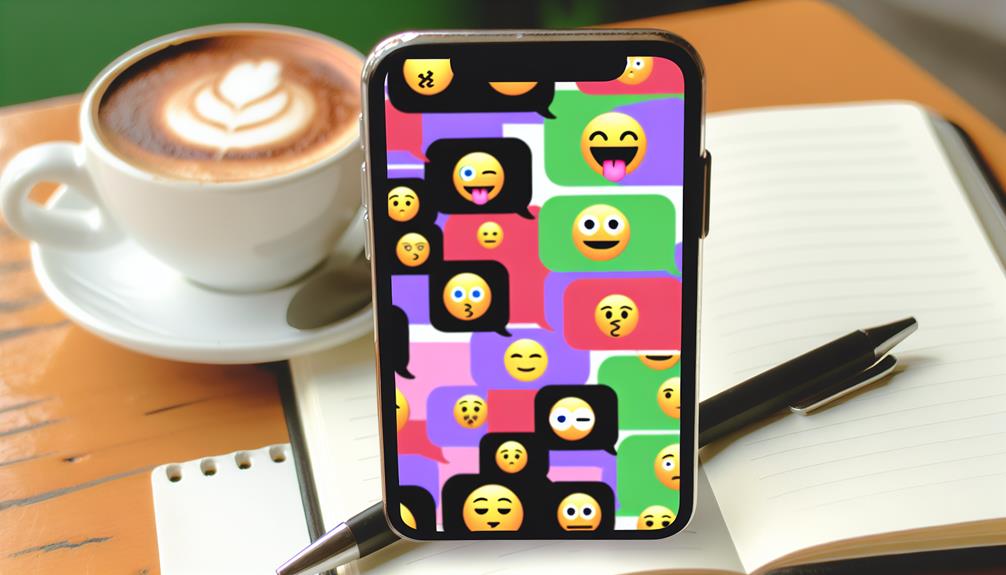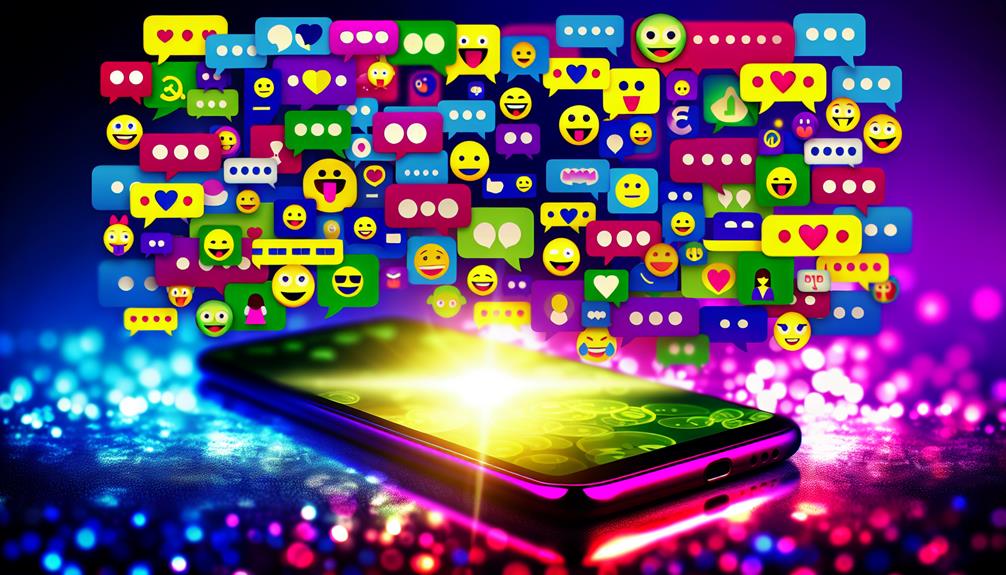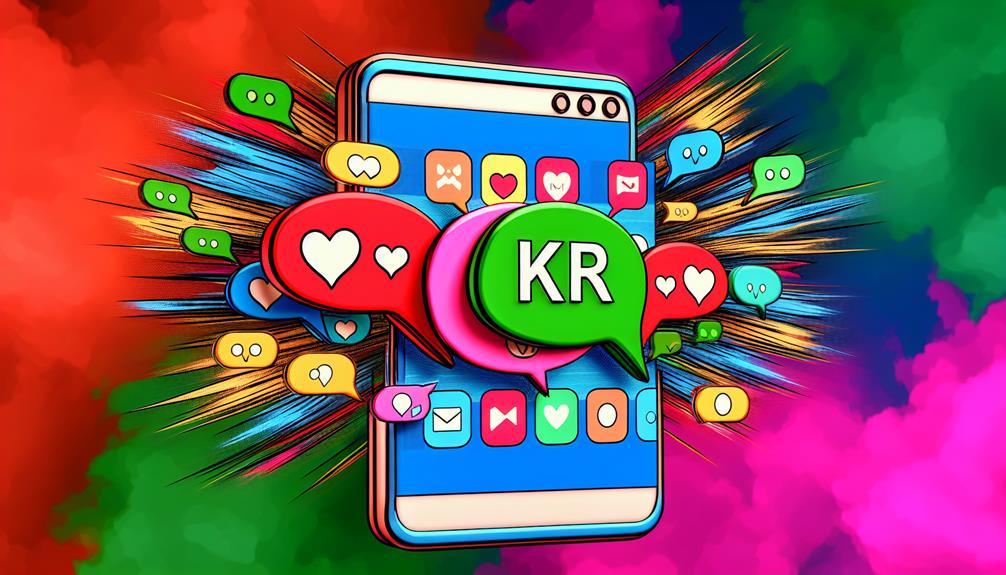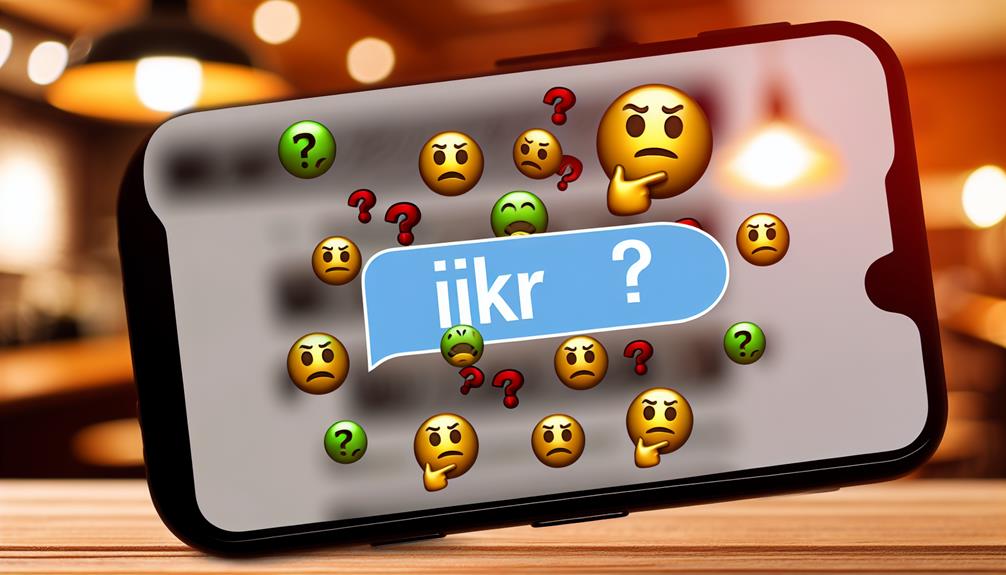The abbreviation "IKR," standing for "I Know, Right?" signifies casual agreement or empathy in texting. Originating in the 1990s, it quickly gained traction through instant messaging and social media, becoming a staple of contemporary digital communication. Users often employ "IKR" to express shared frustrations or enjoyment in various contexts, such as discussing pop culture or common life experiences. Its tone can reflect a range of emotions, from playful to serious, influencing interpretation among different generations. Understanding its nuances enhances effective communication, paving the way for deeper connections and more effective exchanges. Further exploration reveals its multifaceted role in communication.
Key Takeaways
- "IKR" stands for "I Know, Right?" and expresses casual agreement or empathy in conversations.
- It originated in the 1990s and became popular in social media during the 2010s.
- Common contexts for "IKR" include shared frustrations, pop culture discussions, and relatable experiences.
- Tone is crucial; playful tones enhance connection while serious tones may alienate recipients.
- Alternatives like "Exactly!" and "Absolutely!" can enrich communication and prevent repetition.
What Does "IKR" Mean?

Although texting has transformed the way we communicate, certain abbreviations have emerged as vital components of digital conversations, one of which is "IKR." This acronym stands for "I Know, Right?" and is commonly used to express agreement or empathy in a casual context. In a similar vein to other popular texting lingo, such as HBU, "IKR" illustrates how users seek to create rapport and shared understanding through concise exchanges. The usage of "IKR" exemplifies the evolution of slang within texting etiquette, reflecting a shift towards more concise forms of expression. It fosters a sense of belonging among users by facilitating immediate connection and understanding in discussions. As digital communication continues to evolve, the integration of such acronyms not only enhances conversational fluidity but also signifies the adaptability of language in the digital age. Understanding these nuances is vital for effective engagement in contemporary communication.
Origin of "IKR"
The origin of "IKR" can be traced back to the early days of internet communication, where users sought efficient ways to express common sentiments in informal exchanges. This texting slang emerged as a response to the growing need for brevity in digital conversations. The cultural significance of "IKR" lies in its ability to foster a sense of belonging among users, signifying shared understanding and empathy. Its widespread use reflects the evolving dynamics of communication in the digital age.
| Year | Context |
|---|---|
| 1990s | Emergence of texting slang |
| 2000s | Rise of instant messaging |
| 2010s | Popularity on social media |
| 2020s | Integration in daily chat |
| Present | A staple in online discourse |
Contexts for Using "IKR"

The abbreviation "IKR" is mainly utilized in casual conversations among friends, allowing individuals to express agreement or shared sentiments in a relatable manner. It is similar to other friendly text abbreviations like "GM" for "Good Morning" and "GN" for "Good Night," which enhance communication by promoting warmth and connection common text abbreviations. Its application extends to social media interactions, where brevity and immediacy are valued, making it an effective tool for reinforcing connections. Additionally, in group chats and discussions, "IKR" serves to foster a sense of camaraderie, enhancing the collective experience of shared opinions and emotions.
Casual Conversations Among Friends
Frequently, friends engage in casual conversations that reflect shared experiences and mutual understanding, making phrases like "IKR" a staple in their texting lexicon. This abbreviation serves as a conversational shortcut, allowing individuals to express empathy and agreement succinctly. In the context of texting etiquette, the use of "IKR" can enhance friend dynamics by fostering an informal atmosphere that encourages open dialogue. It signals that one is attuned to another's feelings or thoughts, reinforcing social bonds. However, it is essential to take into account the relationship context; overuse can lead to a lack of sincerity. Ultimately, "IKR" exemplifies how language evolves within friendships, enabling deeper connections through shared vernacular while maintaining the informal nature of casual exchanges.
Social Media Interactions
How do social media interactions shape the use of abbreviations like "IKR"? In today's digital landscape, social media etiquette has evolved to embrace concise communication, making abbreviations increasingly popular. "IKR" serves as a quick way to express shared understanding or agreement, fostering a sense of community among users. However, digital communication challenges arise when not all participants are familiar with such terminology, potentially leading to misunderstandings. The use of "IKR" can signal inclusivity, as it invites others into the conversation while establishing a common linguistic ground. Consequently, social media interactions not only enhance communication efficiency but also reflect the need for belonging in a fast-paced online environment, where brevity does not compromise connection.
Group Chats and Discussions
Group chats and discussions represent a dynamic context in which the abbreviation "IKR" thrives, reflecting both the immediacy of conversation and the shared experiences among participants. Within these digital environments, "IKR" serves as a succinct affirmation of shared sentiments, enhancing group dynamics by fostering a sense of belonging among members. Its usage exemplifies texting etiquette, as it conveys empathy and understanding without the need for lengthy explanations. Additionally, in fast-paced conversations, "IKR" allows for efficient communication, enabling participants to quickly align on feelings or opinions. As group chats often involve diverse perspectives, the strategic use of "IKR" can help maintain cohesion, affirming connections and reinforcing social bonds. Ultimately, it encapsulates the collaborative spirit inherent in modern communication.
Examples in Casual Texting
In casual texting, "IKR" often emerges in conversations where mutual understanding or agreement is expressed, highlighting its role in reinforcing social bonds. This abbreviation can also serve as a bridge in discussions about career opportunities, where shared sentiments about job frustrations or aspirations are common. For those exploring new paths, it's important to acknowledge the discover rewarding careers available today. Common situations include discussions about shared frustrations, pop culture phenomena, or relatable experiences. Variations in context usage can further illustrate how "IKR" adapts to different conversational dynamics, providing insight into the nuances of modern communication.
Common Situations for "IKR"
Numerous scenarios in casual texting illustrate the versatility of the abbreviation "IKR," which stands for "I know, right?" This expression is commonly employed to convey agreement or shared sentiment, often in response to a statement that resonates strongly with the sender's own feelings. Below are common situations where "IKR" might be effectively utilized within the framework of texting etiquette and generational slang:
| Situation | Example Text | Response |
|---|---|---|
| Agreeing on a show | "Did you see the latest episode? It was amazing!" | "IKR! I can't believe that twist!" |
| Sharing frustrations | "Traffic was terrible today." | "IKR, it took me forever!" |
| Complimenting friends | "You're so talented!" | "IKR, I always knew it!" |
| Commenting on trends | "This new song is everywhere!" | "IKR, it's so catchy!" |
Variations in Context Usage
Exploring the variations in context usage of "IKR" reveals its adaptability across different conversational scenarios in casual texting. The term is often employed to express shared understanding or agreement, but its contextual nuances can shift considerably based on the relationship between the communicators. For instance, younger generations frequently use "IKR" among peers to convey camaraderie and light-heartedness, while older users may adopt it more sparingly, reflecting generational differences in communication styles. Additionally, the emotional tone can vary; "IKR" may convey empathy in one instance, while in another, it may express exasperation. Understanding these variations fosters a sense of belonging, as individuals navigate the multifaceted nature of digital interactions.
"IKR" in Social Media

The abbreviation "IKR," which stands for "I know, right?", has become a prevalent expression in social media interactions, reflecting a shared understanding or agreement among users. Its use is emblematic of current texting trends, where brevity and immediacy are valued. In the domain of social media etiquette, employing "IKR" can foster a sense of camaraderie among peers, as it signifies alignment in thoughts or feelings about a given topic. As seen in the tech industry, where innovation drives conversations, using "IKR" can also indicate engagement with trending topics, such as Tesla's growth potential. However, users should be mindful of context; while "IKR" conveys informality, overuse may dilute its impact. As digital communication continues to evolve, understanding the nuances of such abbreviations is essential for steering social interactions and enhancing connections within online communities, ultimately contributing to a sense of belonging.
Alternatives to "IKR"
In conversations where "IKR" might be overused or deemed inappropriate, several alternatives can effectively convey a similar sentiment of agreement or shared understanding. Exploring trending communication styles can also provide insight into how language evolves in social interactions. Synonyms for "IKR" include phrases like "I know, right?" and "Exactly!" which express a direct acknowledgment of shared feelings. Additionally, expressions of agreement such as "Absolutely!" or "For sure!" can enhance conversational engagement without sounding repetitive. Using these alternatives can foster a sense of belonging, as they resonate well within different social contexts. Moreover, incorporating phrases like "Totally agree" or "I feel the same way" can deepen connections, allowing participants to articulate their consensus in a more varied and impactful manner. Embracing these options can enrich communication while still conveying the essence of "IKR."
Common Misunderstandings

Common misunderstandings surrounding the acronym "IKR" often stem from its informal nature and the context in which it is used. These misinterpretations can vary widely, particularly across generational differences, leading to confusion in communication.
| Misinterpretation | Context | Example |
|---|---|---|
| Overemphasis on Agreement | Older generations may see "IKR" as an emphatic affirmation. | "That movie was terrible, IKR!" |
| Sarcasm Misread | Younger users may intend sarcasm, which older users might not catch. | "You finished your homework, IKR?" |
| Casual vs. Formal | Some believe "IKR" is suitable in all contexts. | "IKR, I love this job!" (in a formal meeting) |
Understanding these misinterpretation examples is essential for effective communication among diverse age groups.
Importance of Tone
Effective communication using acronyms like "IKR" heavily relies on the tone conveyed by the sender. The tone nuances embedded in a message can greatly alter its interpretation, impacting emotional expression and the overall interaction. For instance, a playful or sarcastic tone can make "IKR" feel light-hearted, fostering a sense of connection among peers. Conversely, a more serious tone can convey frustration or disappointment, potentially alienating the recipient. Understanding these subtleties is essential in ensuring that the intended sentiment aligns with how the message is perceived. Therefore, mastering the art of tone in texting not only enhances clarity but also strengthens the bonds of belonging within digital conversations, allowing individuals to express themselves authentically while maintaining relational harmony.
"IKR" in Different Generations

Across various generations, the usage and understanding of the acronym "IKR" have evolved, reflecting broader cultural shifts in communication. Initially popularized by younger demographics, "IKR" serves as a form of generational slang that encapsulates agreement or shared sentiment. For Millennials and Gen Z, its casual nature aligns with their preference for rapid, informal exchanges, often facilitated by social media. In contrast, older generations may perceive "IKR" as an abbreviation that complicates standard communication. These communication differences underscore the distinct linguistic landscapes shaped by technological advancements and social norms. As "IKR" continues to permeate conversations, it not only serves as a shorthand but also fosters a sense of belonging among those who share this digital lexicon.
Frequently Asked Questions
Is "Ikr" Considered Formal or Informal Language?
The term "ikr," an abbreviation for "I know, right," is categorized as informal language primarily used in casual conversations and social media interactions. Its usage reflects a relaxed tone, often employed among peers to convey agreement or shared sentiments. While it fosters a sense of belonging within informal communication settings, it is not suitable for formal discourse, where standard language conventions are expected. Consequently, "ikr" exemplifies the evolving nature of digital communication.
Can "Ikr" Be Used in Professional Communication?
The use of "IKR" in professional communication is generally discouraged due to its informal nature. Professional etiquette dictates that language should be clear and respectful, particularly in communication contexts that demand a level of decorum. Utilizing abbreviations or slang can undermine the seriousness of a message and may lead to misunderstandings. Consequently, it is advisable to opt for more formal expressions to maintain professionalism and foster an inclusive environment conducive to collaboration.
How Has "Ikr" Evolved Over Time?
The evolution of "IKR" reflects broader social media and texting trends that emphasize brevity and informality in communication. Originally an acronym for "I Know, Right?", its usage has expanded from casual conversations to more widespread adoption across various platforms. This shift illustrates society's growing preference for concise expressions that foster connection and shared understanding, highlighting a communal desire for belonging and relatability in an increasingly digital landscape.
What Are the Cultural Differences in Using "Ikr"?
Cultural differences in the usage of "IKR" reveal significant insights into generational trends and perceptions. Younger demographics often embrace this abbreviation as a means of establishing camaraderie and shared understanding in digital communication. In contrast, older generations may view it as informal or inappropriate, reflecting varying cultural perceptions regarding language evolution. Such discrepancies highlight the broader dynamics of communication within age groups, emphasizing the importance of context in fostering belonging among diverse audiences.
Are There Any Regional Variations in "Ikr" Usage?
Regional variations in the usage of "IKR" can be observed, influenced by factors such as cultural context and generational differences. Younger demographics, particularly in urban areas, often employ "IKR" more frequently in digital communication, reflecting a trend towards informal expression. Conversely, older generations may be less inclined to utilize such abbreviations, resulting in a disconnect. Understanding these nuances enhances our awareness of how language evolves within different communities, fostering a sense of belonging among users.

